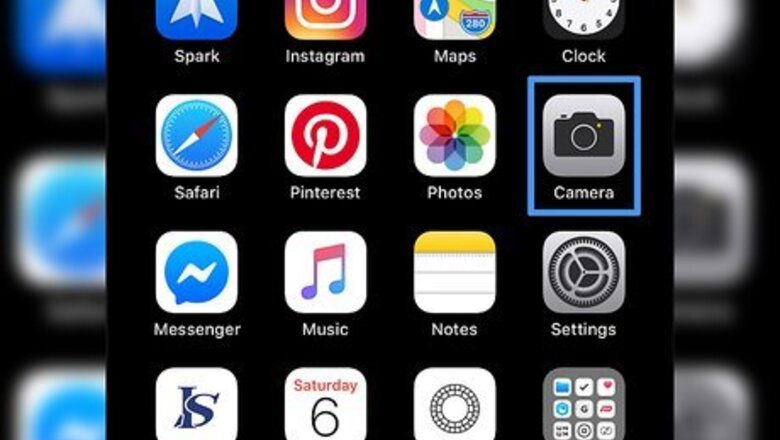
views
Capturing Great Pictures

Use your phone’s internal camera. Instead of taking photos through Instagram itself, pull up your device’s dedicated photo app. Your internal camera doesn’t have the same size constraints, so you’ll be able to take large, high-quality photos and edit them to suit your exact specifications later on. This will enable you to shoot more fluidly on the go without stopping to open another app. Photos will look better if they’re shot uncompressed and then loaded through the Instagram app. Shooting with your internal camera will also ensure that you’ll be able to save and store photos, even if you decide not to post them right away.

Make sure the image is in focus. An otherwise extraordinary picture can be ruined if it’s out of focus. Keep a steady hand just before you hit the shutter to prevent annoying motion blur and last second automatic adjustments. Use both hands to take the shot, or put yourself in a better position to stabilize if you’re shooting one-handed. Tapping the screen will allow you to customize the exact focal point of the shot.

Create interesting compositions. It’s not enough to simply point and shoot if you really want to create something remarkable. Not only do you need an eye-catching subject, you also need to be able to frame it in a way that maximizes its allure. Rather than photographing an object or scene head on, confine it to one edge of the frame to establish a sense of continuity with your background. Follow the “rule of thirds.” In the language of photography, this refers to compositional guidelines of dividing the image into three distinct sections to highlight your subject while also drawing attention to the other elements in the scene. Select Instagram’s new portrait mode to fit more of a vertical photo into the post.
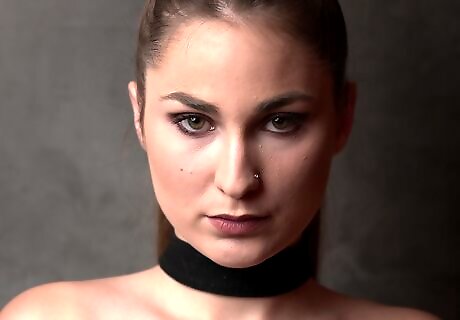
Get up close and personal. If you’re positioned too far away, your viewpoint will seem remote and disconnected. Closeups are more engaging because they suggest a greater intimacy between you and your subject. They’ll also emphasize the rich detail of your photos, making them feel more real. The human eye is drawn to complex textures, which will make people more likely to take notice of your photos. Closeups cut down on the amount of uninteresting dead space around the edges of the frame.
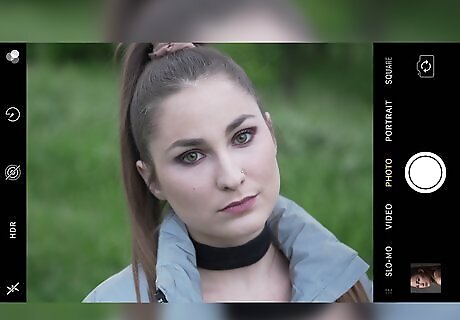
Work with natural lighting. When searching for the perfect light source, head outside. Even the most sophisticated lenses can’t replicate the subtle diffusion that’s ever-present in world around us. Natural lighting will help you avoid harsh contrasts and grainy, underexposed blunders. Stay away from the camera’s flash as much as possible. Too much sudden light can cause a picture to come out looking overexposed. If you need a little extra illumination for night shoots, use another external source, like a floodlight or reflector. Natural lighting makes colors come across more faithfully, preventing the need for extensive touchups in editing.
Cropping and Editing
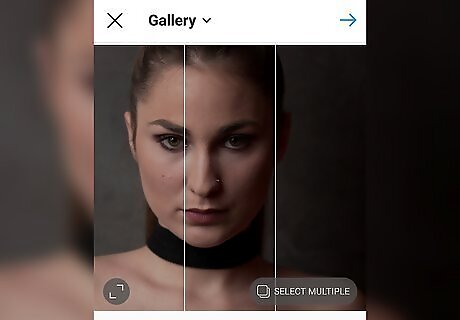
Crop your photos to make them more aesthetically pleasing. One of the benefits of using Instagram is that it allows you to fine-tune the look of your pictures, meaning they don’t have to be perfect the moment you take them. Slide your photos around in the edit window until you find the perfect way to frame them. Pinching and spreading the image with your fingertips will enlarge it so that you can take advantage of the space you have and pull your focal point closer to the viewer. Be sure to edit out goofs and imperfections, like a stray piece of litter in the bottom of the frame or the edge of your thumb overlapping the lens.
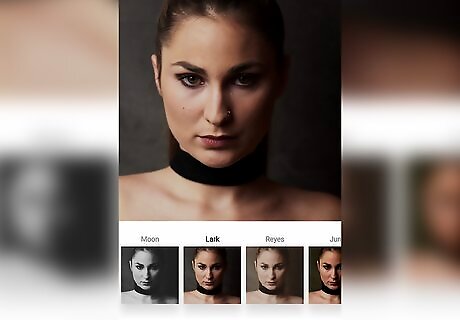
Don’t overdo it with filters. As much as possible, let your images speak for themselves. There may be times when a subtle overlay can serve to balance the colors and contrast of a particular shot, but piling on too many effects will just end up looking tacky. If you need to make adjustments, do it individually using the separate options in the toolbar. It’s a good idea to limit the bulk of your adjustments to the three most basic editing tools: brightness, contrast and color saturation. You can change the intensity of a given filter by double-tapping the filter’s name and adjusting it achieve just the right amount of flair.

Use other apps to refine your edits. You may find yourself feeling limited with Instagram’s selection of editing options. In these situations, it can help to have another app like VSCO or Diptic on standby. These programs offer more specialized features, like more sophisticated light-manipulation techniques or the ability to piece together dazzling collages. Download companion apps separately and do your editing in them before importing the image to Instagram.

Come up with an engaging caption. Your latest Instagram masterpiece isn’t ready to post until it’s accompanied by a short description of the experience. A solid caption will your viewer’s attention and say something about the image that places it in a broader context. Your captions will have the best effect when they’re concise, humorous or make people think. Draw inspiration from compelling quotes, song lyrics or snippets of literature. Keep your captions short and sweet. Some people may be off put by the idea of reading through a lengthy blurb.
Perfecting Your Technique
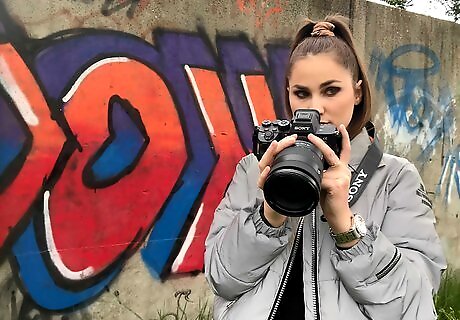
Shoot your photos with a separate camera. The camera technology on smartphones is better than it’s ever been, but it still can’t match the optical power of a quality standalone camera. Use one of these to take the picture, then open it via Instagram to add the finishing touches. Companies like Nikon, Canon and Leica manufacture affordable professional-grade cameras that can allow any aspiring photographer to realize their artistic visions. You may need to limit the file size of the pictures in your camera before you export them to make sure they show up crisp and clear on Instagram.

Give your feed some personality. Tailor your Instagram portfolio to express a certain theme, like fine cuisine or the great outdoors, or show off your creative sensibilities by honing a unique style that’s evident in all of your posts. Don’t just analyze each picture on its own but as a part of a larger collection that says something about you as a photographer. Avoid snapping the same types of photos over and over again, as this can become repetitive over time.

Play around with unusual colors, textures and angles. Get out there and experiment with bold and daring setups. Shoot photos from a variety of different angles and incorporate natural shapes and patterns from the surrounding environment. Recognizing that there are aesthetic opportunities everywhere can elevate your photography to a higher level. Use clean lines, like the corners of buildings or a gridwork of windows, to bring your subject into sharp relief. Don’t be afraid to break the rules from time to time. Just because something didn’t quite work for one photo doesn’t mean it won’t work for another.

Look for moments worth photographing. Keep an eye out for exciting, strange or heartfelt things going on around you and be ready to capture them. These events can offer a glimpse into a scene that may never happen again. Some of the most emotionally resonant photos are simply the result of being in the right place at the right time. Be careful about invading other’s privacy or personal space in your quest for the perfect picture. Anyone can take a selfie or post a pic of what they’re eating. It takes a well-trained eye to seek out special occurrences.



















Comments
0 comment